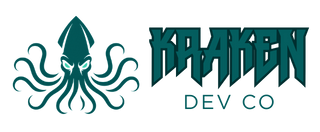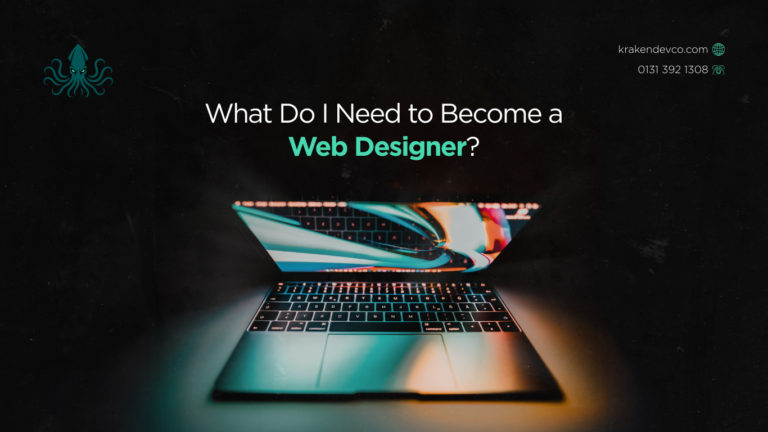
What Skills Are Required for AI Engineer Roles in 2025?
AI engineering isn’t a theoretical pursuit. It’s code, models, systems—shipped fast, at scale, with precision. At Kraken Dev Co, we don’t romanticise Artificial Intelligence. We architect, optimise, and deploy it. If you’re aiming to become an AI engineer—or hire one—you need more than buzzwords. You need battle-tested capability.
This guide breaks down the skills required for an AI engineer in 2025. It’s not fluff. It’s the real stack—tools, platforms, protocols—engineered for production. Let’s get into it.
Core Responsibilities of an AI Engineer
An AI engineer doesn’t “work with AI”. They build it. They ship AI systems that scale, adapt, and perform under load. Typical AI engineering tasks at Kraken Dev Co include:
- Training and deploying deep learning and machine learning models
- Designing autonomous systems for real-world integration
- Implementing AI applications using Computer Vision, NLP, and Generative AI
- Building secure data pipelines and handling Big Data across distributed systems
- Operationalising AI via MLOps pipelines, observability, and deployment on AI PCs or cloud platforms like Microsoft Azure and Google Cloud AI
Fundamental Skills You Need in 2025
1. Advanced Programming Proficiency
AI systems run on code. You need fluency in:
- Python: The industry standard for AI development and rapid prototyping
- C++: For high-performance, latency-sensitive operations
- Java & JavaScript: Used in enterprise-grade AI Apps and interface logic
- R: For statistical modelling, particularly in healthcare and academic AI research
Version control via Git, continuous deployment with GitHub Actions or Jenkins, and containerisation via Docker and Kubernetes are baseline.
2. Mastery of Machine Learning and Deep Learning
Know your models—and how to optimise them. At minimum:
- Supervised & Unsupervised Learning
- Reinforcement Learning with environments like OpenAI Gym and Ray RLlib
- Neural Networks: Build and tune CNNs, RNNs, LSTMs, and Deep Neural Networks using PyTorch or TensorFlow
- Generative Models: Use and fine-tune GANs, VAEs, and generative pre-trained transformers (GPTs)
- Transformer Architectures: Foundational for large language models like Google Gemini, Hugging Face models, and Massive Multitask Language Understanding systems
Evaluation metrics must be second nature—precision, recall, F1-score, ROC-AUC.
3. Natural Language Processing (NLP)
AI engineers need to process, analyse, and generate human language. Competencies include:
- Tokenisation, parsing, sentiment analysis
- Training custom LLMs or fine-tuning GenAI models
- Deploying NLP models via Hugging Face Transformers
- Integrating NLP into virtual assistants and voice assistants (Amazon Lex, IBM Watson)
4. Computer Vision and Image Recognition
Image-based AI applications are expanding fast—from facial recognition in public security systems to autonomous vehicles and self-driving cars.
- Implement image classification, object detection, segmentation
- Use Convolutional Neural Networks (CNNs) and OpenVINO™ Model Hub
- Train models like YOLO, Detectron2, or custom architectures on AI Factories
5. Data Engineering and Big Data Infrastructure
AI systems are only as good as their data infrastructure. You’ll need to:
- Build pipelines using Apache Spark, DuckDB, Flink
- Work with SQL and NoSQL stores
- Handle real-time streams and massive datasets
- Implement data analytics and predictive analytics
Secure design, secure deployment, and cyber threat protection are essential—think threat modelling, supply chain security, incident management.
6. GenAI and Large Language Models (LLMs)
LLMs aren’t just trending—they’re foundational to 2025 AI.
- Understand how to fine-tune generative pre-trained transformers
- Integrate models into user-facing AI Apps and recommendation systems
- Optimise for inference speed and compute efficiency using Intel® Gaudi 3 AI accelerators and Intel® Core™ Ultra processors
7. AI Frameworks and Tools
You need to be comfortable with:
- TensorFlow, PyTorch, Keras – For model development
- Scikit-learn – For classical machine learning
- OpenCV – For vision applications
- Hugging Face – For working with pre-trained models
- GitHub Copilot, Visual Studio, Intel® Developer Zone – For AI-powered development environments
Non-Technical Skills That Set You Apart
1. Secure Development Practices
AI engineers must apply software security principles:
- Secure operation and maintenance
- Asset and technical debt management
- Compliance with AI Act, AI system development life cycle, and sectoral safety legislation
2. Communication and Stakeholder Alignment
AI doesn’t exist in isolation. You’ll need to:
- Explain technical trade-offs to non-technical stakeholders
- Justify AI ethics decisions (e.g., Responsible AI, regulation of artificial intelligence, robot rights)
3. Critical Thinking & Rapid Problem Solving
You’re debugging failing training runs. You’re handling anomalies in autonomous robots. You’re making architecture trade-offs on a tight deadline. This is where instinct meets experience.
Experience vs Credentials: What Matters More?
Academic Qualifications
Many AI engineers hold postgraduate degrees in AI, Computer Science, or Data Science. But paper doesn’t ship production.
Real-World AI Projects Matter More
What recruiters and clients look for:
- Code that runs: Repos on GitHub with README files and architecture diagrams
- End-to-end builds: Chatbots, image recognition apps, autonomous system demos
- Deployments on platforms like AWS Lambda, Vercel, or Google Cloud Run
- Contributions to AI open-source communities, like Hugging Face or TensorFlow
AI Specialisations to Consider
Once you’ve got the fundamentals, specialise to differentiate:
- NLP: Virtual assistants, semantic search, language models
- Computer Vision: Autonomous vehicles, image segmentation, facial recognition
- AI Infrastructure & Ops: Scalable deployments, AI observability
- Speech Recognition: Build AI applications that understand and generate speech
- Ethical AI & Governance: Specialise in AI ethics, machine ethics, artificial moral agents
Emerging Technologies Every AI Engineer Should Know
2025 is shaped by:
- Heterogeneous computing across CPUs, GPUs, and specialised AI chips
- AI PCs powered by Core i9 and Emerald Rapids processors
- Federated Learning and Differential Privacy in production AI systems
- AI governance under the European AI Strategy, AI Continent Action Plan, and Data Act
Understanding frameworks for Responsible AI, machine regulation, and ethical AI design is no longer optional.
Build Your 2025 AI Career Pipeline
Kraken Dev Co recommends the following roadmap:
- Master Python and AI frameworks
- Build core projects using TensorFlow, PyTorch, and real datasets
- Deploy models using cloud-native services
- Document everything—architecture, design rationale, evaluations
- Join user groups and hands-on labs from the AI Skills Academy
- Contribute to open-source projects, publish your work, and maintain an active developer profile
Final Word from Kraken Dev Co
AI engineering is not a soft skill career. It’s an elite developer discipline, grounded in mathematics, engineering, and security. You’re building autonomous systems that operate without human input. There’s no room for vagueness.
At Kraken Dev Co, we engineer AI to ship. If you’re serious about building AI that works—in production, under pressure, across sectors—we want to hear from you.
Whether you’re scaling AI applications, building human language interfaces, or deploying on distributed supercomputing infrastructure—get Kraken.



